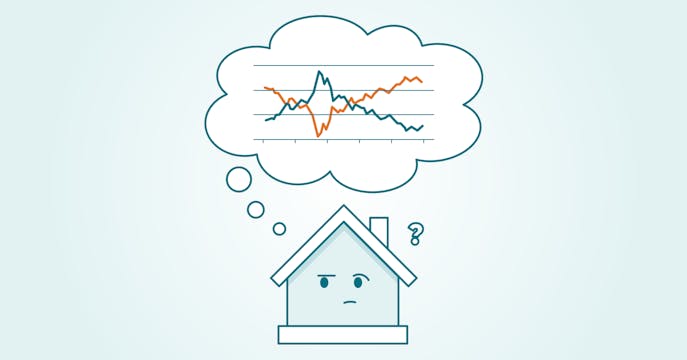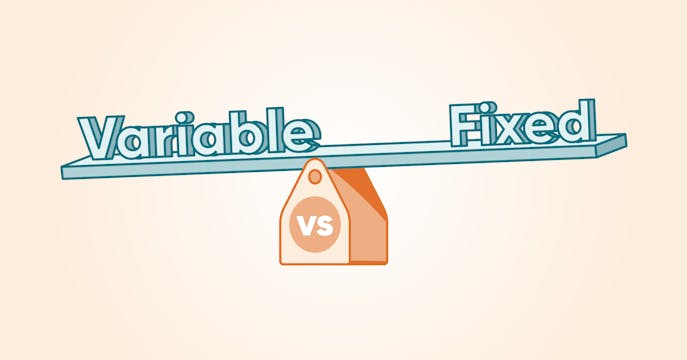Variable mortgage rates could provide flexibility in uncertain 'tariff' times.
Could tariffs lead to lower variable rates in 2025?
The Bank of Canada may be "forced into additional interest rate easing to the tune of 50–75 basis points (bps) [equivalent to 0.50-0.75% in rate cuts]."
– TD economics report delving into the ramifications of only a 10% U.S. tariff imposed on all Canadian goods, October 2024
Variable mortgage rates (and those for HELOCs) float and change along with the Bank of Canada's interest rate movements (which inform bank prime rates).
In the beginning, just the threat of tariffs was enough to impact markets due to underlying nervousness about Canada's ability to grow its economy. Now, with Canada in a technical recession — primarily dragged down by tariff-impacted sectors — the Bank of Canada will carefully weigh the need to spur growth. If the trade disruption continues to infect more sectors and consumer confidence, variable rates could decrease further in 2025 than originally forecast.
For homeowners, the result could translate into significant savings from lower mortgage payments (or reduction in amortization for those with fixed-payment variable mortgages) — a potential silver lining for those comfortable banking on the 'risk for change' posed by a variable rate choice.
Would the Bank of Canada raise rates to fight tariff-driven inflation?
"We will need to carefully assess the downward pressure on inflation from the weakness of the economy, and weigh that against the upward pressure on inflation from higher input prices and supply chain disruptions.”
– Bank of Canada Governor Tiff Macklem, Jan. 29, 2025
As we mentioned, historically, central banks have been cautious about raising rates to address escalating cost-push inflation. Higher rates would increase consumer and borrower costs and deepen the economic trench.
The BoC's sole mandate is to keep inflation to a 2.0% target. But if this cost-push inflation is superimposed on a weakening Canadian economy, the central bank would likely shift its focus from fighting inflation to supporting the economy.
However, inflationary pressures and trade volatility on both sides of the border may still limit the BoC's ability to cut rates as quickly as the economy requires — or force it to pause its policy rate if inflation risks remain.
If demand tanks due to job losses, wouldn't that lower inflation?
Lowered demand due to job losses or household financial uncertainty could absolutely place downward pressure on consumer prices. Fewer people buying means businesses are pressured to keep prices lower to remain competitive.
Would it be enough to combat higher prices passed on to consumers due to higher tariffs? That's where the push-pull of inflationary forces start to complicate the economics — companies are caught in the middle, needing to compensate for higher input costs from trade taxes while keeping prices low enough to attract customer purchases.
Weak consumer demand may not be enough to mitigate higher 'tarifflation.' Especially if tariffs on energy remain in place; the U.S. imports Canadian crude for almost 60% of its needs, with some re-crossing the border back into Central Canada, which is certain to impact prices across the board.
Why haven't interest rates been lowered in response to tariffs?
Right now, the cuts are on hold, with a Bank of Canada policy rate of 2.75% and most bank prime rates at 4.95%.
The Bank of Canada did lower its benchmark rate at the start of Trump's trade bluster, in late 2024 and early 2025. However, as the turmoil persisted this year, inflationary pressures emerged first, keeping prime rates paused, while fixed rates increased due to bond market volatility.
Canada is negotiating a (new) Canada-U.S. trade agreement, which may not be settled until Spring 2026. Before then, however, rates may come down if the Canadian economy continues to post signs of weakening, like a softer labour market and negative GDP, which will likely temper demand and reduce the price impact of rising tariff inflation.





